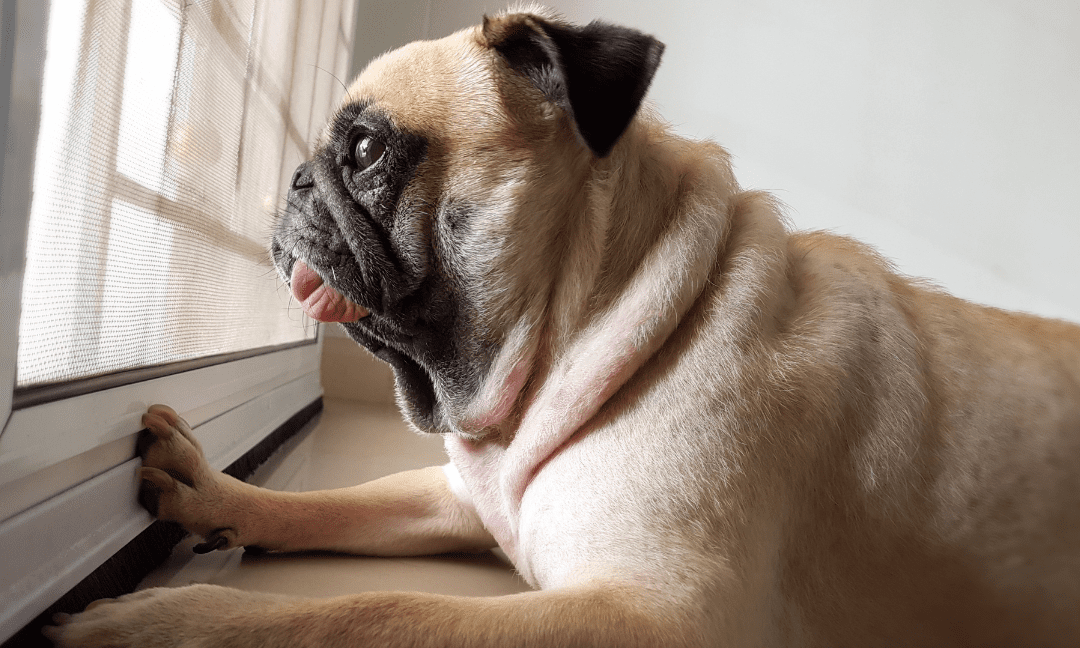Does your usually chill fur buddy start to get all fidgety when you start packing your suitcase? Do they get rowdy and aggressive when you leave for a holiday? Dog separation anxiety, more aptly termed as separation distress or panic is real. It can happen not only when you go on vacation but also when you need to leave them in general.
It is a relatively common behavioural disorder, and it is a lot more than just “getting bored”. In some cases, it can be debilitating to the lives of these wonderful pets and their humans. In Australian society, dog separation anxiety is also a contributing factor that pet owners relinquish their dogs.
Causes
Like any behavioural disorder, the cause may be due to Experience, Environment and Genetics.
Experience – Encountering previous traumatic incidents when they are alone
Examples:
- Abandonment in a shelter
- Being neglected, punished, abused, or roughly treated
- Hearing loud noises or witnessing distressing events (e.g. storm, fireworks, break-in, earthquake)
- Experiencing a loss of a pet friend and or a family member
Environment – Lack of appropriate socialisation
Examples:
- No environmental exploration since puppyhood
- Being caged all the time
- First time being left alone
- Changes in routine
Genetics – Some dogs may be born along the spectrum of susceptibility to developing this illness.
Signs
Dogs with this illness may react differently. Here are some of the common signs:
- Hyper-salivation
- Excessive barking, howling or whining
- Indoor urination and defecation
- Diarrhoea
- Refusal to eat
- Digging
- Intense Pacing
- Trembling
- Panting
- Cowering
- Destructive behaviour through scratching and chewing
- Freezing, standing and staring at the door and inability to move
- Self-harm by biting themselves
- Aggression towards others
How to Manage Dog Separation Anxiety
- Encourage regular exercise
- Provide toys for entertainment
- Avoid giving kisses and hugs before leaving because it feeds their separation anxiety. Reward them with affection when you arrive home.
- Switch up your routine and desensitise your dogs to leaving cues (e.g. the sound of keys, the smell of perfume, picking up your purse). You can try going through your usual routine and not leave the house.
- Find a sitter or family member to stay with your dog while you’re away
- Speak to a medical professional for proper diagnosis and prescription medications.
It is important to note that this is a mental medical problem and an emotional disease. It should be diagnosed and treated under the guidance of someone qualified in veterinary behavioural medicine. Although there’s no cure, it is manageable.
For more pet-love blogs, read >>> HERE.


